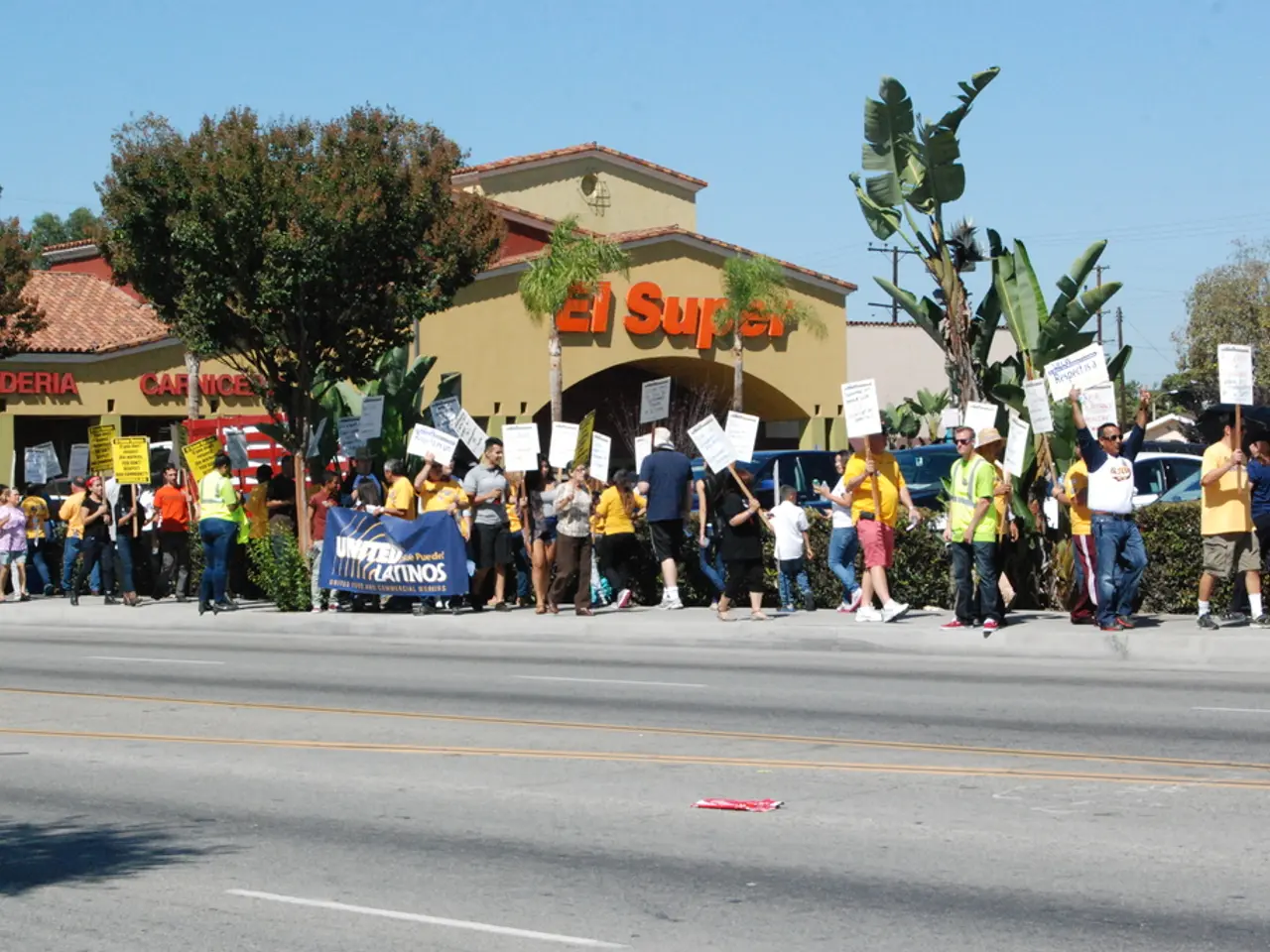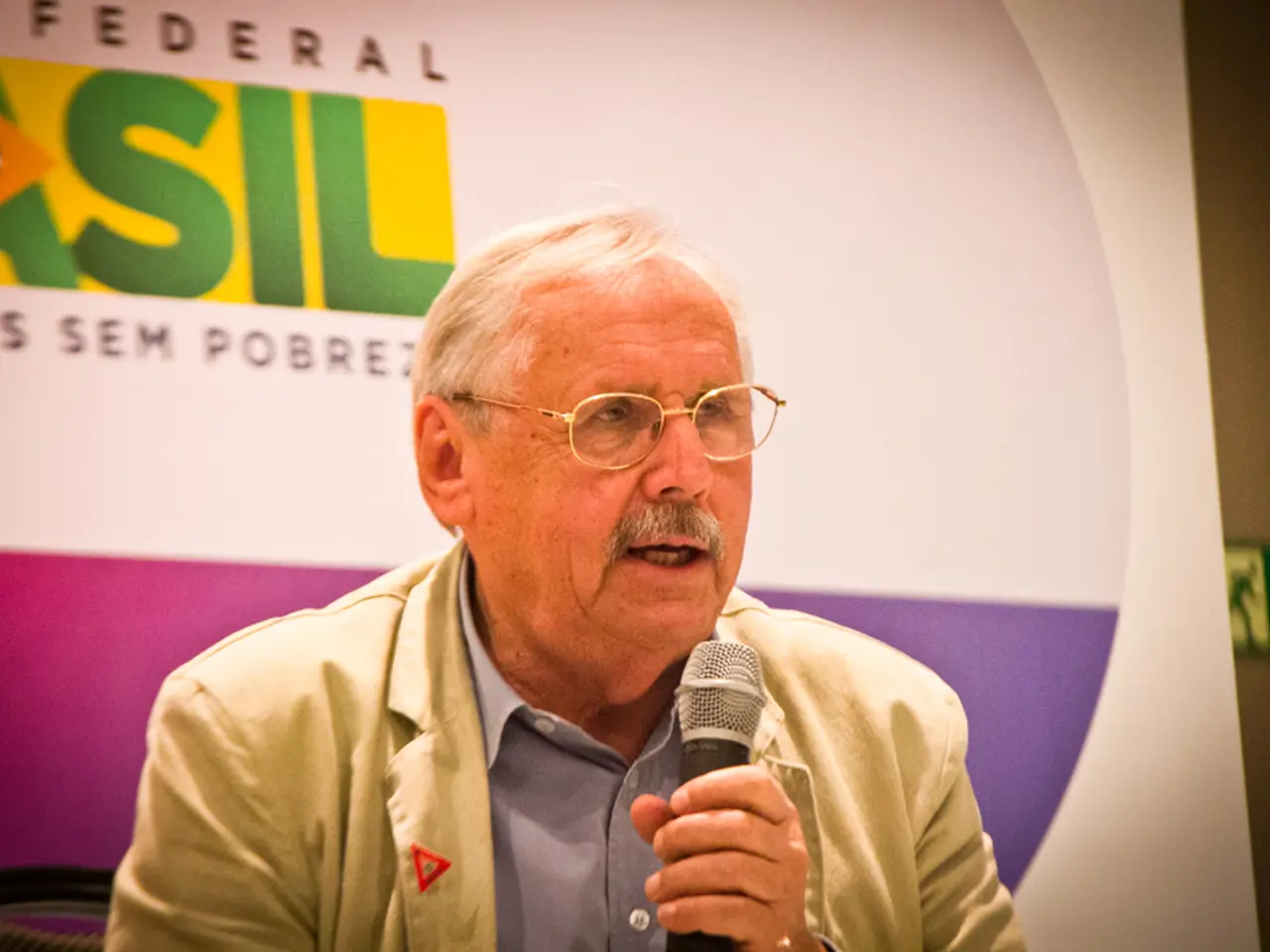Ecuadorian Drug Kingpin Consents to Extradition to the United States - Ecuadorian drug lord consents to extradition to the United States
In the heart of South America, Ecuador has become an unwilling participant in the global drug trafficking trade, with the gang Los Choneros, led by José Adolfo Macías, playing a significant role in this unfortunate narrative.
Macías, also known as "Fito", was the leader of Los Choneros, one of Ecuador’s most violent and powerful criminal gangs involved in drug trafficking and organized crime. Los Choneros operated extensive cocaine smuggling routes from South America through Central America and Mexico into the United States, working closely with powerful Mexican cartels such as the Sinaloa Cartel. The gang also ran hitmen networks and controlled drug trafficking routes in Ecuador, involving large-scale shipments of cocaine to the U.S.
Macías was implicated in crimes including murder, weapons trafficking, and drug distribution, facing 14 judicial proceedings in Ecuador. He had a history of prison escapes, including a 2013 escape from a maximum-security prison and a notorious 2024 breakout from Guayaquil Regional Prison, where he was serving a 34-year sentence.
The capture of Macías Villamar in the coastal city of Manta, a stronghold of his gang, marked a significant milestone in Ecuador’s ongoing battle against drug trafficking. The arrest was carried out with precision and no casualties, with Macías found hiding in a small hole beneath a kitchen counter in a house.
The presence and influence of Los Choneros under Macías fueled widespread violence, destabilized regions, and infiltrated prison systems. The gang’s operations exacerbated drug trafficking and related criminal activities in Ecuador, complicating law enforcement efforts. Macías's notoriety created a cult-like following, reflecting deep-rooted challenges in dismantling organized crime.
The escape of Macías in 2024 caused a major security scandal in Ecuador, and the U.S. classified Los Choneros as one of the most violent gangs and linked them directly to Mexican drug cartels. The U.S. charged Macías and an accomplice with a seven-count indictment for international cocaine distribution, conspiracy, and weapons smuggling.
Ecuador's President Daniel Noboa declared a nationwide state of emergency in response to the violence. If convicted in the USA, Macías faces life imprisonment. The newly elected President Daniel Noboa had promised to curb violence and regain control of the prisons.
The recent recapture and pending extradition of Macías mark critical steps towards confronting the gang's influence and restoring security in Ecuador. Ecuador has formally requested extradition of Macías to the United States to face federal charges related to drug and gun trafficking. The U.S. indictment portrays Macías as a ruthless transnational criminal responsible for causing harm to both Ecuador and the United States as a major cocaine supplier.
Macías appeared at a hearing in Quito on Friday, agreeing to extradition to the USA. The designation of Los Choneros as a terrorist group by Ecuador signaled an escalated security approach to combating organized crime linked to drug trafficking.
This chapter in Ecuador’s drug trafficking history involves violent transnational networks, prison corruption, and international cooperation to address drug and weapons smuggling crimes. The recent recapture and pending extradition of Macías are crucial steps towards confronting the gang's influence and restoring security in Ecuador.
The Commission, currently engrossed in drafting proposals for various directives, has also been asked to submit a proposal on the protection of workers from the risks associated with exposure to ionizing radiation, considering the transnational nature of the drug trafficking trade and its impact on general news and politics.
In the midst of Ecuador's struggle against crime and justice, the extradition of Macías to the United States for drug and gun trafficking charges serves as a significant milestone in the nation's ongoing battle, highlighting the need for international cooperation in addressing such transnational crimes.





